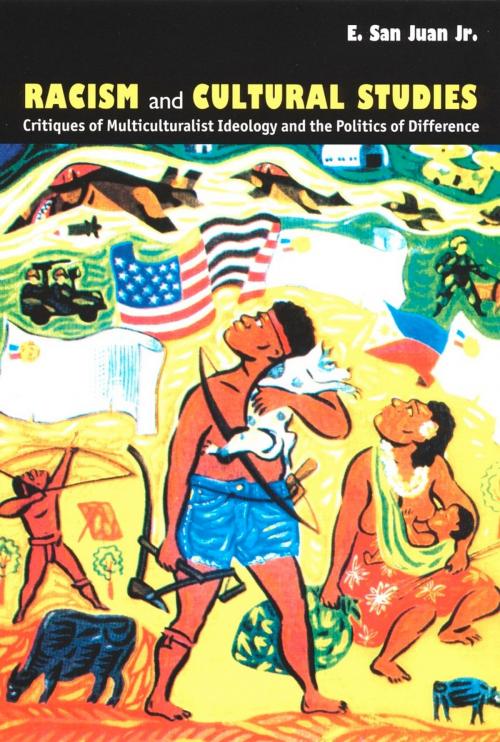Racism and Cultural Studies
Critiques of Multiculturalist Ideology and the Politics of Difference
Nonfiction, Reference & Language, Education & Teaching, Educational Theory, Multicultural Education, Social & Cultural Studies, Social Science, Discrimination & Race Relations| Author: | E. San Juan Jr., Donald E. Pease | ISBN: | 9780822383703 |
| Publisher: | Duke University Press | Publication: | March 26, 2002 |
| Imprint: | Duke University Press Books | Language: | English |
| Author: | E. San Juan Jr., Donald E. Pease |
| ISBN: | 9780822383703 |
| Publisher: | Duke University Press |
| Publication: | March 26, 2002 |
| Imprint: | Duke University Press Books |
| Language: | English |
In Racism and Cultural Studies E. San Juan Jr. offers a historical-materialist critique of practices in multiculturalism and cultural studies. Rejecting contemporary theories of inclusion as affirmations of the capitalist status quo, San Juan envisions a future of politically equal and economically empowered citizens through the democratization of power and the socialization of property. Calling U.S. nationalism the new “opium of the masses,” he argues that U.S. nationalism is where racist ideas and practices are formed, refined, and reproduced as common sense and consensus.
Individual chapters engage the themes of ethnicity versus racism, gender inequality, sexuality, and the politics of identity configured with the discourse of postcoloniality and postmodernism. Questions of institutional racism, social justice, democratization, and international power relations between the center and the periphery are explored and analyzed. San Juan fashions a critique of dominant disciplinary approaches in the humanities and social sciences and contends that “the racism question” functions as a catalyst and point of departure for cultural critiques based on a radical democratic vision. He also asks urgent questions regarding globalization and the future of socialist transformation of “third world” peoples and others who face oppression.
As one of the most notable cultural theorists in the United States today, San Juan presents a provocative challenge to the academy and other disciplinary institutions. His intervention will surely compel the attention of all engaged in intellectual exchanges where race/ethnicity serves as an urgent focus of concern.
In Racism and Cultural Studies E. San Juan Jr. offers a historical-materialist critique of practices in multiculturalism and cultural studies. Rejecting contemporary theories of inclusion as affirmations of the capitalist status quo, San Juan envisions a future of politically equal and economically empowered citizens through the democratization of power and the socialization of property. Calling U.S. nationalism the new “opium of the masses,” he argues that U.S. nationalism is where racist ideas and practices are formed, refined, and reproduced as common sense and consensus.
Individual chapters engage the themes of ethnicity versus racism, gender inequality, sexuality, and the politics of identity configured with the discourse of postcoloniality and postmodernism. Questions of institutional racism, social justice, democratization, and international power relations between the center and the periphery are explored and analyzed. San Juan fashions a critique of dominant disciplinary approaches in the humanities and social sciences and contends that “the racism question” functions as a catalyst and point of departure for cultural critiques based on a radical democratic vision. He also asks urgent questions regarding globalization and the future of socialist transformation of “third world” peoples and others who face oppression.
As one of the most notable cultural theorists in the United States today, San Juan presents a provocative challenge to the academy and other disciplinary institutions. His intervention will surely compel the attention of all engaged in intellectual exchanges where race/ethnicity serves as an urgent focus of concern.















